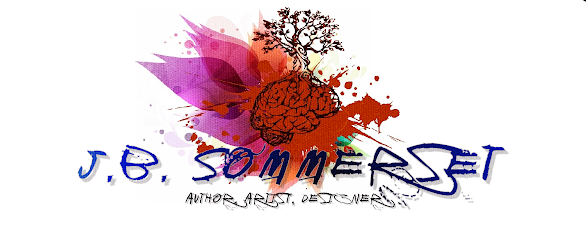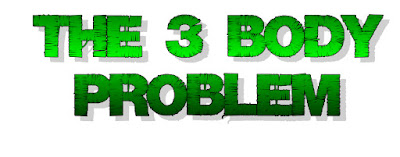Don't be a word counter...
One of the hardest parts of novel writing, also a trap that many writers fall into, is counting words. All of us writers want to write our Opus Maximus, with umpteen-trillion words and several appendices to attach. You know, that book that people look at and ask "you wrote that?" with disbelief. So what do we do? We watch the word counter and struggle to stretch our work.
The horrible truth is that words don't make a story, a story makes a story. No matter how many words we try for, it has to be a natural process and it must be authentic and flow well. Readers are like bloodhounds, they can sniff out a faker. If most of the words seemed forced, your work will smell like used gym socks to an avid reader; they will know you faked it, and all the extra words will ruin your work.
Of course, depending on the type of writing, there are submissions that require a specific amount of verbiage (Collegiate papers, medical journals, technical writing, etc.), we are not talking about those. We are talking about everyone's favorite type of writing, the fun kind, the novel.
The average word count for a novel is around 40000 words or more. This is generally considered novel-length (a good target is 50000-70000 words). However, there are no hard and fast rules for word count.
Since everyone is different, and we all have different messages we want to convey, there are various ways to consider a good word count. Some long, and some short. For instance, George R. R. Martin's "Game of Thrones" series. There was clearly no way to tell the story, other than with a crap-ton of words. There is simply too much information to be brief. The same can be said about Robert Jordan's "The Wheel of Time" series (which comes in at a staggering amount, right around 10660 pages, roughly 2.9 million words for the series). Simply put, there is too much information to convey while also staying brief. On the other hand, there are books such as "Of Mice and Men" by John Steinbeck, which comes in at around 30000 words, yet it is still a classic and has been for almost a century. It is clean, short, and only tells one story.
So where do we as writers start when considering our own work, and how long we should make it. How do we avoid the word count trap?
(Just a forewarning here, there are a few cliches below.)
First off, know your self, know your writing. "To thine own self be true", in this case, "To Thine own Pen be True". What I am saying is simple, if you a trying to write a story to fit someone else's mold, you will most likely be counting how much information you need. When I first started writing, back when I was fifteen, I tried to write a lot of other people's work. I was writing the stories I thought were cool, not ones that were inside me. The ones I had in my heart. They were books, but they were not my truths. I would constantly find myself stretching the story to make the story look unique. It's not that I was trying to write an original story, it was that I was trying to write something that had already been written, and I was writing it in the same way it was originally written. Nearly everything I wrote was garbage, unwieldy knock-offs with more word filler than actual worthwhile writing (one such story was 180,000 words of which maybe 30000 was usable). Being true to yourself will allow you to write what needs to be written, not what you think needs to be written.
Second, and this is a big one, for the first draft, write distraction-free and then clean it up in a program like Grammarly, Scrivener, or Google docs, MS word, etc. This will help you in more ways than just word count. I use Omm, Writer (chrome extension), and Autumn Note. I stick the headphones in and write about 4000 words each time I sit to write. I don't try and fix errors, I don't try and keep track of time, I don't mess with formatting. The only thing I do is set the counter at 4000 and write until it tells me my goat is met, sometimes more if I am on a role. This way I am only ever working on one small attainable goal instead of an unachievable big one. The 4000 words goal is arbitrary, I started off with 1500 a day, but as my typing speed increases so did the goal. This helped me in more ways than I can count.
Third, know where you are going with the story or at least the direction. Personally, I don't map the whole thing, it needs to breathe. Sometimes I write the ending first and then work forwards to that point. Sometimes I create points (events) and write through them like a connect the dots picture (I keep these as a very loose framework, sometimes I ignore them completely). This provides a map, so I don't get stuck on filler trying to come up with what happens next. Sometimes writers "eddy" in circles trying to understand where his or her character is going to go.
Fourth, remember that any good writer is going to "kill there darlings" when they rewrite. This one is for those of you who write too much. When you finish a rough draft, it is important to cut the fat, run lean, kill your darlings. This one is hard, so hard, and you may find your self saying "I love what I wrote, why would I want to kill it?" Well, its really quite simple, no one wants to read all the extra crap you put in there, they want, "just the facts", not all your red-headed stepchildren. That first draft, however, it doesn't matter how long it is, write everything, write all of it, you will cut it out later. Don't think about how much or how little it is, it will change when you rewrite. Just get the story out there, and do it in the way it needs to be done.
Usually, I write about tips in threes, it is much easier to remember them. This time I did four, I had some extra time. There are many more tips I could have included here but I think less is more most of the time. I will be adding to this later on. So keep posted up here and keep an eye out.
Cheers!


